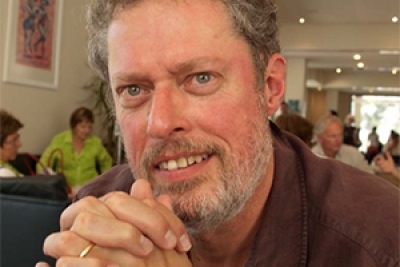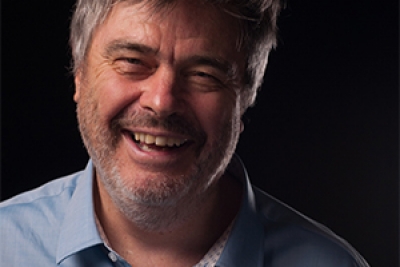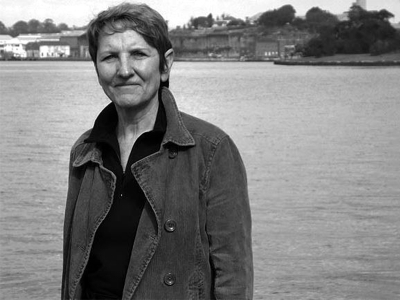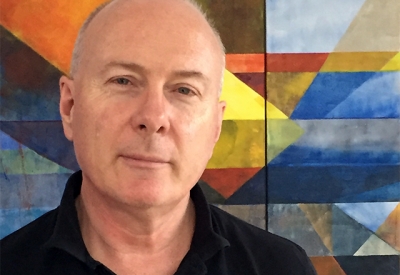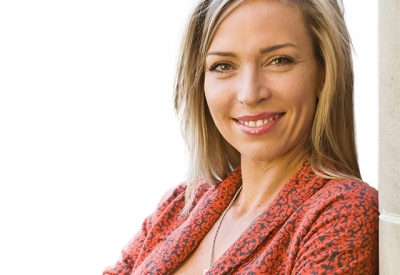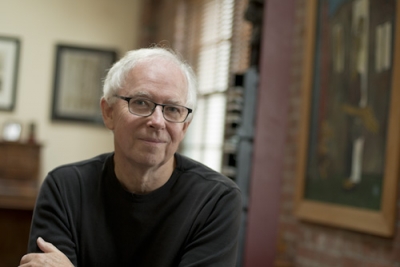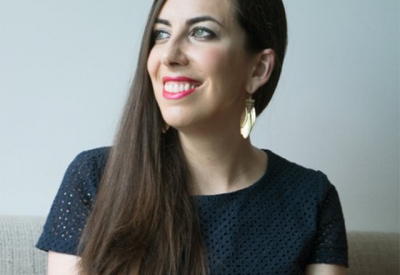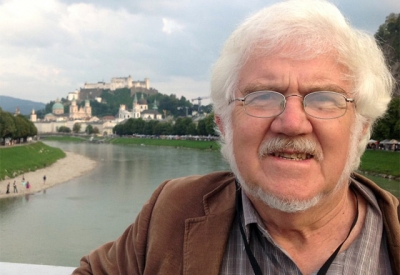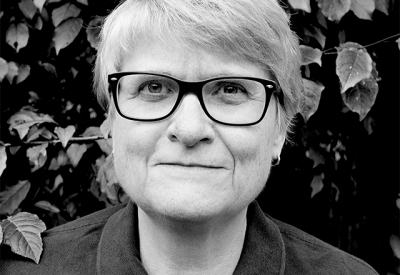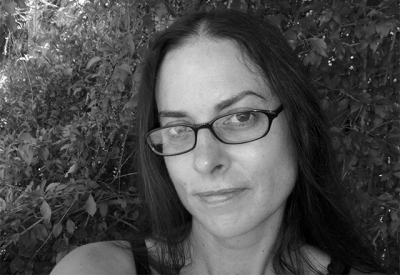Poet of the Month
You learn very different things from different poets, from formal aspects, some of them minute, to whole revelations about what a poem might be. This is always developing, and influences tend to come in waves or moments, with anthologies and magazines, subcultures ...
... (read more)I work for an outfit called Narrative Verse in English, our company founder being a man called Geoff, Geoff Chaucer. After him it’s up for grabs, though given what I write, Pope, Byron, Browning. Clough, Meredith, Frost, and Kenneth Koch rate very highly ...
... (read more)ABR: Which poets have most influenced you? PB: Influence is transient – it changes all the time. I can’t always pinpoint it directly or say which poets might be most influential on my poems. From the mid-1960s I read everything – the French, the Dadaists, the Eastern Europeans, Vladimir Mayakovsky. Gertrude Stein reigned supreme for me ...
... (read more)Which poets have most influenced you? In the 1980s I read Emily Dickinson’s poetry intensively, and I suspect that her superbly compressed work is ingrained within me. In late adolescence I loved the musicality of W.B. Yeats, and later I grew to admire W.H. Auden’s complexities and clarity. I dwelt for a while in the evocations of New Zealander Lauris Edmond. Recently, I have been reading the tensile work of Tusiata Avia with great enjoyment. Many Australian poets, including Judith Wright and Rosemary Dobson, have influenced my writing.
... (read more)Which poets have most influenced you? I first fell for the British Romantics: Keats for his sensitivity, and Byron for his humour, both qualities I try to exercise in my own work. Otherwise it’s the Americans of last century: the Moderns, Stevens in particular, and later the West Coast poets. I like to find these poets thinking (and sometimes running) in my poems.
... (read more)Before I knew about poetry it would have been the Grimms, plus Orson Welles reading ‘The Happy Prince’. Then R.A.K. Mason, Carl Sandburg, Robert Creeley – at which point I developed a taste for clunkiness, awkwardness, tonal non sequiturs, all the way from Wyatt, Hardy, and the weirder parts of Browning, to Frank O’Hara and Stevie Smith. My poetry tastes have always been pretty chaotic: in my reading universe, Lorine Niedecker, John Betjeman, Adrienne Rich, and the Beowulf poet all rub along together.
... (read more)My first poetic influences were all American, due to the fact that I spent my critical early reading years in the United States. My poetic imagination is steeped in the disjecta membra of poets like Bishop, Stevens, Bogan, Dickinson, Ammons, Lowell, Moore, Hughes, Rich, and Eliot; I couldn’t erase their presence if I tried. Bishop, in particular, is a poet I never tire of – her forensic eye and tremendous command of the line are extraordinary. Beyond those earliest influences, there are too many poets to begin naming names, for fear of never stopping. Recently, I’ve been blown over by the exquisite, savage poems of Pascale Petit, particularly those in Fauverie.
... (read more)Public oratory and prose fiction both need a significant degree of rhythm, but for almost all poetry (including free verse) rhythm is indispensable. Both genres use the 'sound effects' of assonance, alliteration, etc., but verbal music is more important to poetry than to prose.
... (read more)Poetry is, usually, shorter, and, in many but not all cases, the lines turn. I've become less attached to prose, especially prose that pretends to 'the poetic'. I'd rather read a book that's prosaic, in the true sense, than a 'poetic' novel. Some prose is poetry, of course, but not because it's poetic. I won't even start on hybrid works.
... (read more)Poetry can say anything that prose says, but it has to get there far more quickly and in much less space. I think this sense of spatial, psychological pressure is the main point of difference.
... (read more)
